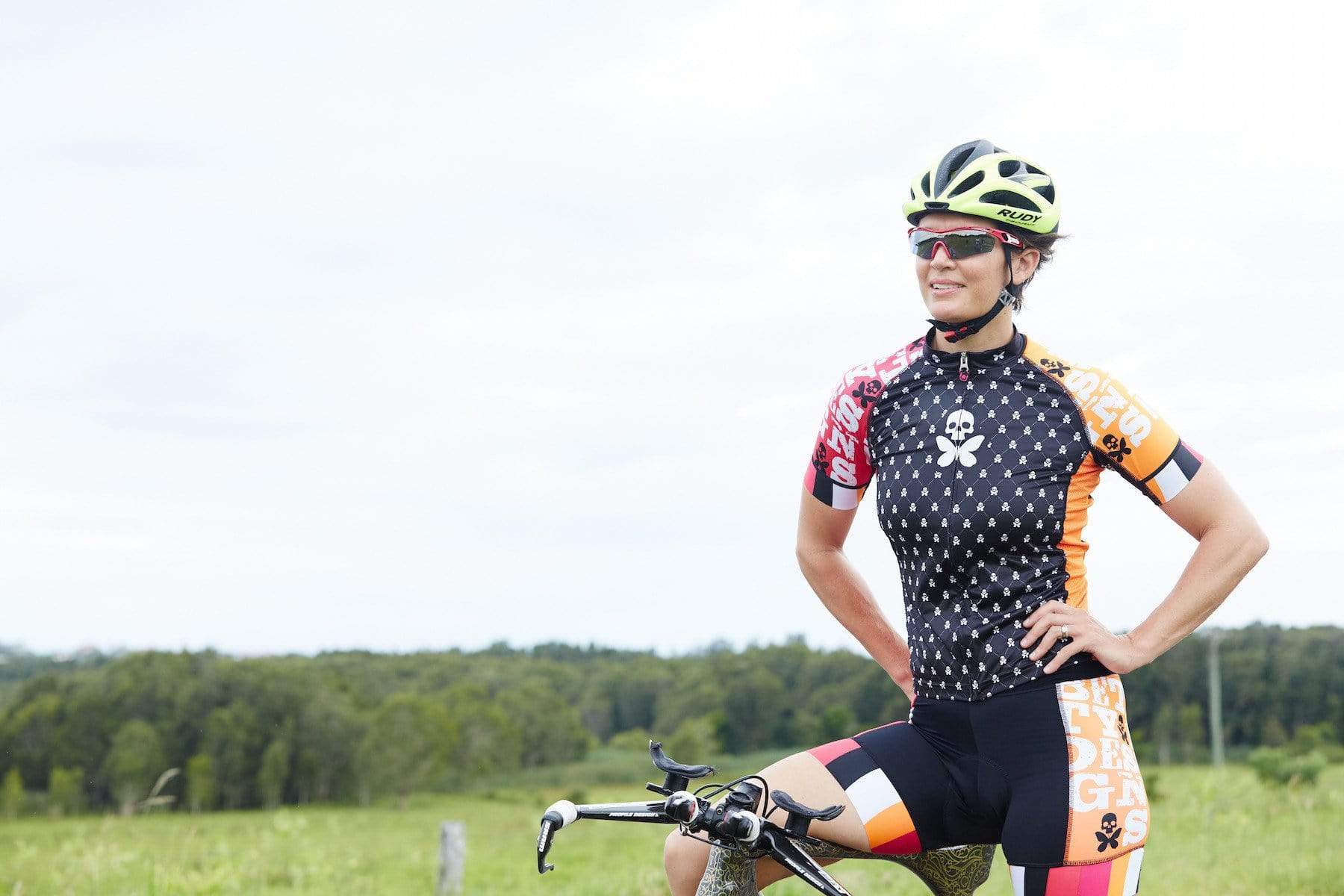
We set out to see what effect if any, this dietary change would have on our ability to burn fat during exercise. We asked: can endurance athletes who 10-15+ hours per week benefit from a zero added sugar and low carbohydrate diet?
As many of you remember, two of us here at The Feed decided to eliminate added sugar from our diets for 90 days. As part of the test, we did before and after bloodwork and VO2 max testing with the help of Dr. Kevin Sprouse of Provision Sports Medicine and Carson at Fascat Coaching.
We set out to see what effect if any, this dietary change would have on our ability to burn fat during exercise. We asked: can endurance athletes who 10-15+ hours per week benefit from a zero added sugar and low carbohydrate diet?
If you're interested, you can read our original blog post here, our blood work analysis here, and our VO2 max results here. Now that our 90-day test has finished, it's time for a brief summary of what we learned during the process, as well as what changed in our 2nd round of testing. As we mentioned in our original blog posts, we DID NOT build this test in a purely scientific way. Instead, we acknowledge that the results and findings are specific to the two of us who did the test. Nothing we've learned is going to apply to everyone, however, we think this is a great test for endurance athletes to undergo.
Anecdotal conclusions:
- Low sugar or zero sugar DOES NOT equal low carbohydrate. This is probably the most significant thing that we can tell you from this test. Both Michael and I perceived dramatic changes from a zero sugar diet, but neither of us were low carbohydrate. Don't fall into the trap of assuming that you have to eat sugar as an endurance athlete. Instead, think about ways to cycle different carbohydrates in your diet and choose what types of carbohydrates you consume.
- Both Michael and I "felt" great throughout the workday. I can tell you that in the past I was someone who got crushed everyday at 3pm...lethargic, very little energy and focus, which required a cup of coffee to get out of. During the past 90 days, my brain function felt more consistent throughout the day. Aside from any physical benefits, this is probably the most striking effect that eliminating sugar had on my daily life.
- We occasionally used sugars such as honey or maple syrup for quick recovery after intense workouts on days when we felt like we needed it. Based on the type of athletes that we are, we felt like this was a key to getting through the 90 day test without hampering our day to day training and physical or performance gains.
VO2 Max Data (listed as before vs after): Note: “CHO” is an abbreviation for carbohydrate.
Michael:
- Weight: before 68.2 kg / 150 lbs, after 67.7 kg / 149.0 lbs.
- Body Fat: before 5.15%, after 5.30%.
- VO2 max (ml/kg/min), before 55.7, after 53.
- Fat max: occurred at 140 watts. Before 0.57 g/min, after 0.70 g/min. This represents a 4% increase in Michael's fat max.
- % CHO vs % Fat burned at 3.7 watts per kilogram: before 91 CHO / 9 Fat, after 73 CHO / 28 fat.
- CHO burned, grams per minute at 3.7 watts per kilogram: before 3.51 grams per minute, after 2.65 g / min.
- Fat burned, grams per minute at 3.7 watts per kilogram: before 0.16 grams per minute, after 0.45 g / min.
- Note: Michael’s above numbers were recorded at 260 watts, slightly more than 3.7 watts per KG.
Bryan:
- Weight: before 81.8 kg / 180 lbs, after 81.8 kg / 180 lbs.
- Body Fat: before 8.14%. after 7%.
- VO2 max (ml/kg/min), before 52.6, after 56.5.
- Fat max: occurred at 240 watts. Before 1.06 grams per minute, after 1.09 g /min. This represents a 3% increase in Bryan's fat max.
- % CHO vs % Fat burned at 3.7 watts per kilogram: before 54 CHO / 46 Fat, after 55 CHO / 45 Fat.
- CHO burned, grams per minute at 3.7 watts per kilogram: before 2.32 grams per minute, after 2.53 g / min.
- Fat burned, grams per minute at 3.7 watts per kilogram: before 0.88 grams per minute, after 0.91 g / min.
- Note: Bryan’s numbers were recorded at 300 watts, slightly less than 3.7 watts per KG.
Blood work before / after analysis: Note: Michael hasn't had his blood work tested recently, so we're listing Bryan's information here. We previously focused on the following key indicators:
- Fasting blood sugar level
- Triglycerides
- HDL and LDL cholesterol
- Hemoglobin A1c (an estimate of blood sugar levels over the past two to three months)
- Fasting insulin levels
- TSH (as a screening test for hormonal stress from training, diet, lifestyle, etc.)
Key point: Dr. Sprouse specifically told Michael and I not to loose weight. In order to to this with a reduction in calories from sugar, we added healthy fats to our diets. Fasting blood sugar: before 103, after 105. Triglycerides: before 39 mg/dl, after 29 mg/dl. HDL and LDL cholesterol: before (HDL) 72, (LDL) 58. After (HDL) 76, (LDL) 42. Hemoglobin a1c: before 5.2, after 5.3. Fasting insulin levels: before 1.8, after 2.3. TSH: before 1.9, after 2.160. As an added data point, my total cholesterol before was 138 mg/dl, while after the 90 days it was 124 mg/dl, a 25% decrease. Via email, Dr. Sprouse added a few comments:
Fasting glucose is slightly higher, but remember that this is a dynamic value that changes hour-to-hour. Your HbgA1c (3-mo average glucose) is pretty stable. So, no big changes in your blood sugar levels. That’s actually a good thing in your case. Your levels were good to start with, and we wouldn’t want to see this tanking as you cut carbs. Your TSH (thyroid stimulating hormone) level has improved. I’d imagine you ate more fat during this time, in order to replace the carb calories. Your cholesterol levels still look great! (That is a common, misconceived argument against this type of nutrition plan.) Your good cholesterol increased, your bad cholesterol decreased, and your triglycerides (which were already great) dropped by 25%!
Conclusions:
- Although this was a significant dietary change, neither of us felt any negative side effects as it related to training and performance. Clearly, this worked for us and the types of athletes that we are, but might not work for all endurance athletes. We both felt like higher training volumes might have made the diet difficult to train with.
- Before we started the test, it was asserted by numerous people that training at high intensity wouldn't work, and wouldn't feel "good". We found no perceived changed what "high intensity" anaerobic intervals felt like, and frequently had them in our weekly training plans.
- Two athletes undergoing 1 90 day test isn't enough to say that yes, this worked for us and our hypothesis was confirmed. However, Michael achieved a 4% increase in his fat max, while I achieved a 3% increase. Although this is one data point, with poorly controlled external variables, both of us were more efficient at burning fat after 90 days without sugar in our diets.
What you can do to repeat this test:
- We highly recommend that everyone sign up for a VO2 max test 2-3 times per year. Although somewhat less popular than a functional threshold test for endurance athletes, the VO2 will provide valuable data as it relates to build a fueling strategy based on your physiology and your sporting goals.
- Find a good sports medicine doctor who understands endurance athletes and can recommend testing protocol based on your sport, dietary considerations, and goals. If you would like to reach out to Dr. Sprouse, you can do so via his website: http://www.provisionsportsmedicine.com/.
- We highly recommend that endurance athletes pick the right time of year to try eliminating sugar. This might be tough during high volume training periods, and we certainly wouldn't recommend it in close proximity to a key event. I personally think this would be a great test for the off season.
